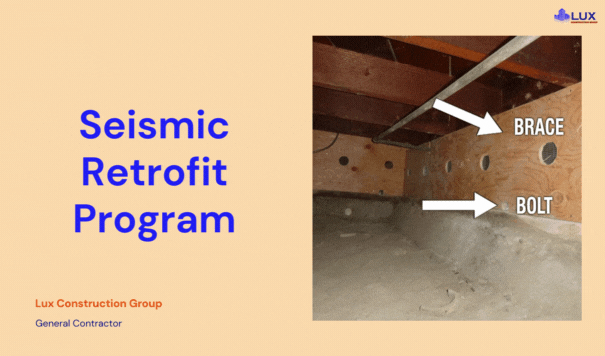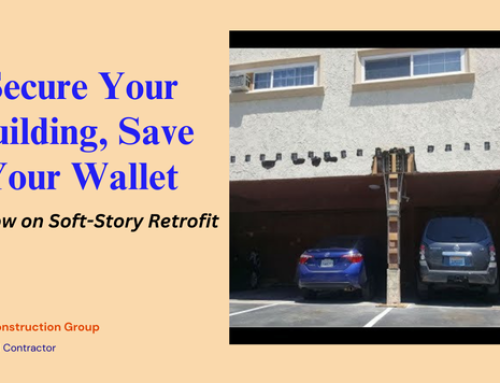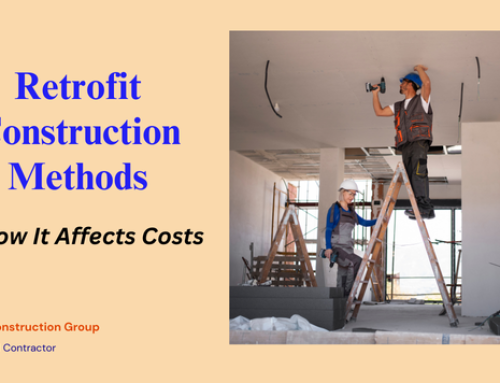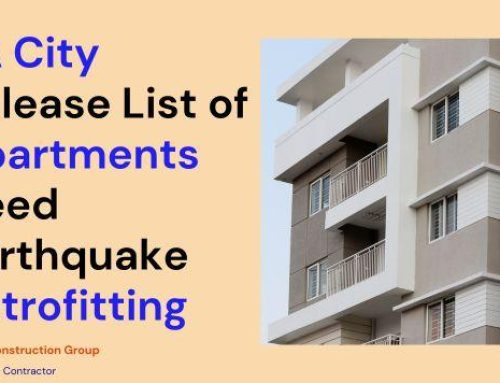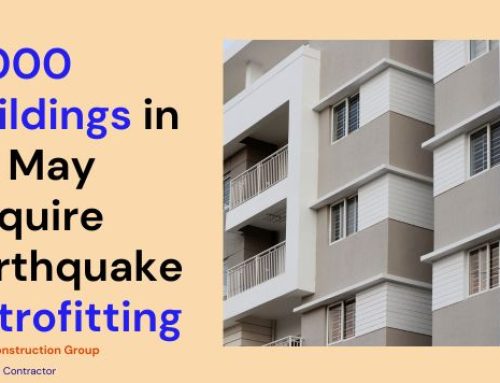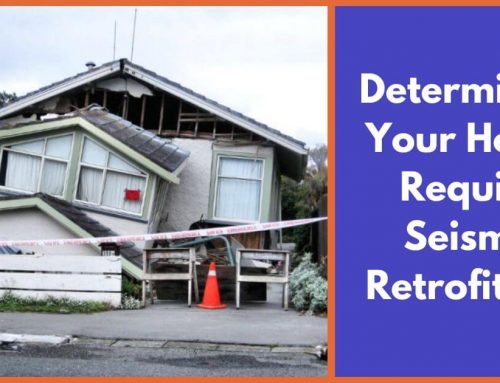Earthquakes pose a serious threat to many communities, especially those located in regions with high seismic activity in Los Angeles. To help protect homes and buildings from the devastating impacts of earthquakes, various seismic retrofit programs have been established by the California Governement.
One such program is the California Residential Mitigation Program (CRMP), which offers earthquake retrofit grants to qualified homeowners in high-risk areas of California. CRMP has two programs you can explore:
- Earthquake Brace + Bolt (EBB): This program is for houses built on a raised foundation with a crawl space underneath.
- Earthquake Soft-Story (ESS): This program targets houses with a living space built over a garage.
These CRMP programs offer grants to cover some of the costs of strengthening your home against earthquakes. They provide financial assistance to homeowners who want to strengthen and fortify their homes against earthquake damage. These grants help cover the costs of completing a residential seismic retrofit.
In the following guide, we are going to elaborate on these two seismic retrofit programs. So, let’s take a look!
Contents
- Types of Seismic Retrofit Programs in Los Angeles
- Earthquake Brace + Bolt (EBB) Retrofits
- Earthquake Soft-Story (ESS) Retrofits
- How to Qualify For Seismic Retrofit Programs?
- EBB Program
- ESS Program
- What is The Registration Process?
- Register Online
- Register By Email
- Process For Selecting Participants & Notification
- What Happens Once You’re In a Retrofit Program?
- Step-by-Step Guide to Recieve EBB & ESS Grant
- Step One: Pre-Retrofit
- Step 2: Approval of Pre-Retrofit Documentations
- Step 3: The Retrofit
- Step 4: Post-Retrofit
- Step 5: Payment
- Soft-Story Retrofit Contractor
Types of Seismic Retrofit Programs in Los Angeles
The CRMP offers grants to support two distinct types of residential seismic retrofits. Each of these retrofit approaches addresses a specific construction vulnerability that can make a home more susceptible to earthquake damage.
Earthquake Brace + Bolt (EBB) Retrofits
An Earthquake Brace + Bolt (EBB) retrofit helps homeowners prevent their raised-foundation or crawl space homes from sliding or toppling off the foundation during an earthquake.
In an EBB seismic retrofit, the home’s foundation is “bolted” to its frame, and when there are crawl space walls under the house, they are “braced” with plywood.
If the home lacks a crawl space, a “bolt only” retrofit may be the appropriate solution.
Earthquake Soft-Story (ESS) Retrofits
An Earthquake Soft-Story (ESS) retrofit reinforces houses with living space over a garage, making them more resistant to earthquake damage caused by ground shaking.
During an ESS seismic retrofit, the workers secure the house’s foundation to its frame, reinforce the walls around the ground floor, and make the walls around big openings like the garage door stronger using materials like plywood, steel, or other proprietary elements.
The aim is to assist homeowners whose houses are at risk of seismic vulnerability. Retrofit helps homeowners to lessen the potential for damage to their house during an earthquake.
How to Qualify For Seismic Retrofit Programs?
If you own a home in certain areas and your house meets specific requirements, you might qualify for financial help to make your house safer in case of an earthquake. Let’s break this down into simpler terms and detail:
If your home is located in a particular ZIP Code and has certain features, you could qualify for a grant of up to $13,000. This grant is meant to support the cost of seismic retrofitting. Seismic retrofitting is a process that strengthens your house to make it more resistant to earthquake damage.
EBB Program
- Who’s Eligible: This program is tailored for homeowners whose houses were built before 1980. These homes should also have either a raised foundation or a crawl space beneath the first floor.
- Grant Amount: You can get a grant of up to $3,000 through the EBB program to help with the costs.
- Extra Help for Some Homeowners: If your family’s yearly income is $87,360 or less, you might qualify for a Supplement Grant. This additional grant could cover up to 100% of the retrofitting costs under the EBB program.
ESS Program
- Who’s Eligible: The ESS program is for those who own homes built before 2000, which have a living space above the garage—a design often referred to as a “soft story.”
- Grant Amount: Through the ESS program, eligible homeowners can receive a grant of up to $13,000.
What is The Registration Process?
To get a grant for improving your home’s earthquake safety (EBB) or for making it more energy efficient (ESS), you need to sign up for a program when they’re accepting registrations. After the registration period ends, they randomly pick homeowners to join. You’ll receive an email letting you know if you’re accepted or if you’re put on a waitlist.
You can register for the Earthquake Brace + Bolt (EBB) and Earthquake Soft-Story (ESS) programs when registration is open. Registration is available for a limited time, usually once a year for each program. If you want to know when registration opens or get updates about retrofit programs, contact https://www.californiaresidentialmitigationprogram.com/
Register Online
Signing up for the EBB and ESS residential seismic retrofit programs is simple and can be done online.
- When the registration period for the program you’re interested in is open, visit the registration page for that program.
- Now, answer the complete list of qualifying questions, like your ZIP Code and when your house was built. You can see the questions you’ll need to answer for each program here:
Important: Make sure that you answer the qualifying questions completely and accurately. This will ensure that you’re eligible and your house qualifies for earthquake retrofit. If your house doesn’t qualify, you won’t get the grant for a complete retrofit. Remember to review the questions.
- If your house meets the qualifications, fill out and submit your registration form before the registration period ends (incomplete forms won’t be accepted).
- Facing problems or have questions while signing up? Don’t worry, just call Customer Service at (877) 232-4300.
- If someone else needs to register for you, they can do so by filling out and submitting this Registration Authorization Form (PDF) along with your registration.
Register By Email
We really want you to register online, but if that’s not possible for you, you can ask our Customer Service Center to send you a paper registration form. If you’re sending in a paper form, make sure it’s stamped with the date on or before the registration deadline.
If you get accepted into one of the CRMP residential retrofit programs, you’ll have to use a computer to log in to your online homeowner dashboard. From there, you can send information to CRMP and get approval to go ahead with your retrofit.
Process For Selecting Participants & Notification
Once the registration period ends, we randomly pick registered homeowners who will be “accepted” into the program. You’ll receive an email notifying you if you’ve been selected. If you’re not chosen right away, don’t worry, you’ll be put on a waitlist.
If you find yourself on the waitlist, please be patient. We continue to accept additional homeowners from the waitlist in the following months after the initial selection. While we can’t promise immediate acceptance, if you’re on the waitlist, chances are you’ll get accepted later on.
Note: To be eligible for a grant, you must not obtain a permit or begin retrofit construction work until you’ve been officially accepted into one of the programs. If you do otherwise, your retrofit work won’t qualify for a grant payment.
What Happens Once You’re In a Retrofit Program?
Congratulations! If you’ve been told you’re in one of CRMP’s residential seismic retrofit programs—EBB or ESS—you’re getting closer to making your family safer from earthquakes and helping your community be stronger.
After you get the notification that you’ve been accepted into either the EBB or ESS program, you’ll have to log into your Homeowner dashboard.
This dashboard is where you’ll upload documents and photos before and after your retrofit for review, approval, and payment. It will help you through each step of the retrofit process and let you know if you need to provide more information.
Step-by-Step Guide to Recieve EBB & ESS Grant
Once your registration is complete, and you’ve been accepted into a retrofit program, it can take about four months at the fastest, but usually between 6 to 12 months to go through the whole process until you receive your grant. To keep things moving smoothly, you might want to stick to the timeline suggested below.
-
Step One: Pre-Retrofit
You have three months (90 days) to collect all the documents and photos you need before making any changes to your home. You can find a contractor from the CRMP Contractor Directory. If you’re confident in your skills, you can do the work yourself, but only if you’re in the EBB program. If you’re in the ESS program, you must choose a contractor from the Directory.
It’s a good idea to start searching for a contractor as soon as you get the green light from CRMP because finding the right person and getting all the necessary quotes can take some time. Log in and track your progress in your Homeowner Dashboard.
- Find a Contractor: Look through CRMP’s Contractor Directory for licensed contractors who have finished FEMA P-1100 seismic retrofit training.
- Contact and Schedule: Reach out to the Contractor Directory and set up appointments to get estimates for the work you need.
- Learn Before Hiring: Read through the guide WHAT YOU SHOULD KNOW BEFORE HIRING A CONTRACTOR.
- Meet and Review: Sit down with the contractors, go over their estimates, and ask any questions you have.
- Multiple Bids Over $10,000: If any of the bids for the retrofit work are over $10,000, make sure to get more than one bid.
- Choose Your Contractor: Decide on a contractor you feel comfortable with and hire them for the job.
- Upload Bids: Upload the bids from your chosen contractor(s) to your Homeowner Dashboard.
- Explanation for Higher Bid: If you pick a contractor whose bid was higher than $10,000 and you had multiple bids, explain why you chose them on your Dashboard.
- Get a Building Permit: Obtain a building permit and upload it to your Homeowner Dashboard. Remember, the permit should be dated after your program acceptance date to be eligible for a grant.
- Check Dashboard for Instructions: Before getting the permit, check your Homeowner Dashboard for specific instructions on what needs to be included in it.
- Apply for Permit: You or your contractor can apply for the building permit. Use the Building Department resources page to find the right department.
- Upload Required Items: By week 12, or earlier if possible, upload these items to your Homeowner Dashboard for approval:
-
- Copy of your building permit
- Plans/Drawings
- Photos of house exterior, garage interior, and crawlspace (if needed)
- Bids
- Proof of occupancy (like a utility bill, if asked for)
- Completed W-9 form (if needed)
-
Step 2: Approval of Pre-Retrofit Documentations
Once they’re given the green light, you’ll get a message saying you’re good to go ahead with your retrofit.
- First, they’ll review your Pre-Retrofit documentation. This step could take around 10 weeks.
- Once CRMP gives the thumbs up on your documents, they’ll let you know. Then you can start your retrofit.
Note: If you want to qualify for a grant, don’t get a permit or start any retrofit work until you’re officially accepted into one of the programs. If you do, your retrofit work won’t be eligible for grant payment.
-
Step 3: The Retrofit
You’ve got six months from when you get approval for your CRMP to arrange and finish your EBB or ESS retrofit.
Once CRMP gives the thumbs up on your pre-retrofit paperwork, you’ll have six months from that date to finish your retrofit.
Just follow the steps on your Homeowner Dashboard will guide you through this process.
-
Step 4: Post-Retrofit
After your retrofit is done, you need to send some paperwork and photos to CRMP within 30 days. You can do this through your Homeowner Dashboard. Here’s what you need to upload:
- Take pictures of specific things mentioned on your Homeowner Dashboard. They’ll tell you exactly what to include in the photos based on the rules of your retrofit program.
- A picture of the building permit signed after the retrofit is finished.
- Your contractor’s invoice should have:
- Their business name, address, phone number, and contractor license number.
- Where the retrofit work was done.
- Dates when the work started and finished.
- A breakdown of costs for labor, materials, overhead, and profit.
- If your grant amount is more than $5,000 and your house is in a flood zone, you will need to submit a signed, notarized, and recorded SPECIAL FLOOD HAZARD AREA CONDITIONS FORM (PDF) and a copy of your flood insurance policy.
Remember to do all this within 30 days after your retrofit is completed.
-
Step 5: Payment
After your post-retrofit documentation gets the final thumbs-up from CRMP (the organization overseeing grants), expect your grant payments to be sent by mail within about four weeks.
To get things rolling, head over to your Homeowner Dashboard and check out the instructions there. You’ll find guidance on how to fill out and submit an electronic Payment Authorization Form.
When you’re filling out the form, make sure to specify whether you want the payment sent directly to you as the homeowner, or if it should go straight to the contractor.
Soft-Story Retrofit Contractor
The Earthquake Brace + Bolt (EBB) and Earthquake Soft-Story (ESS) retrofits address common construction weaknesses, anchoring homes more securely to their foundations and reinforcing flexible ground-floor areas. These retrofits help homeowners protect their most valuable asset – their home – and ensure the safety of their families when the ground starts to shake.
If you live in Los Angeles and want to safeguard your home, explore the seismic retrofit grant opportunities available in your area. And when you’re ready to get the work done, consider turning to the experienced team at LUX Construction Group.
We are seismic retrofit contractors in Los Angeles with more than 35 years of experience. We evaluate properties, design retrofit solutions, and manage the entire construction process. We pride ourselves on delivering high-quality work that meets all relevant building codes and standards, giving you peace of mind and enhanced protection for your home.

